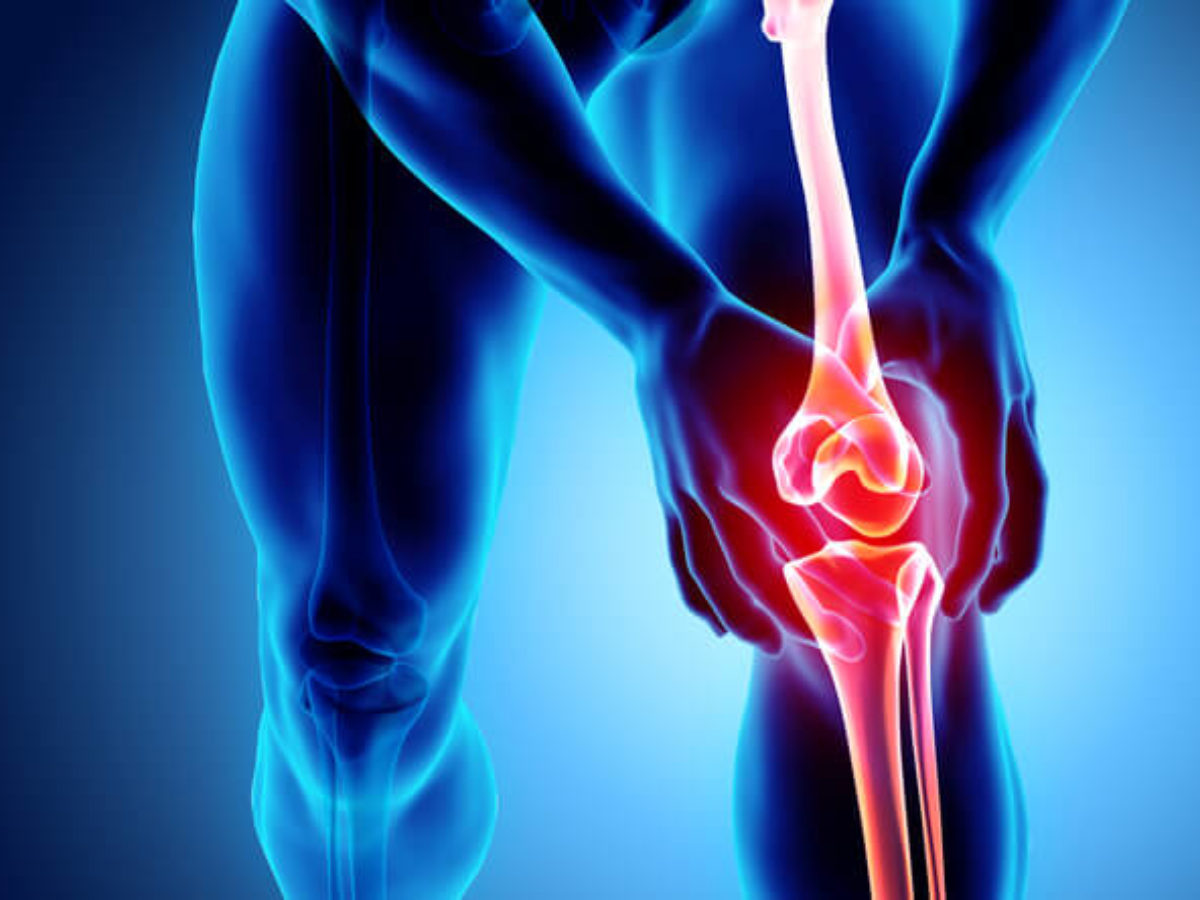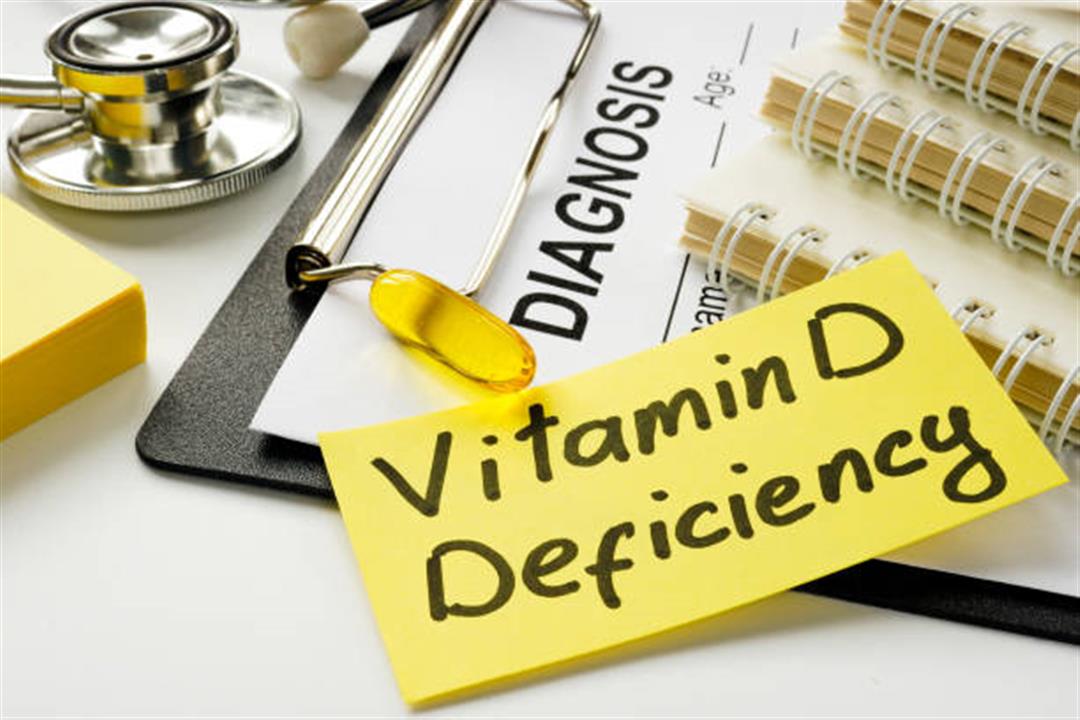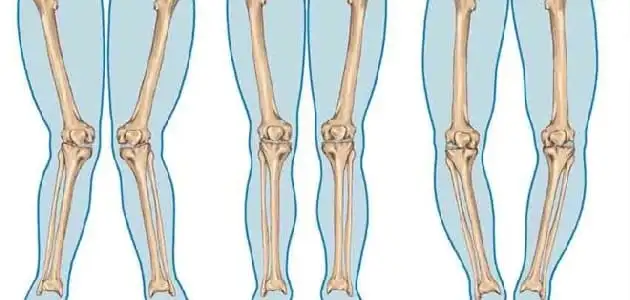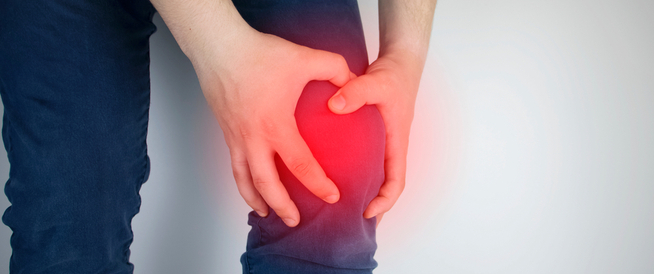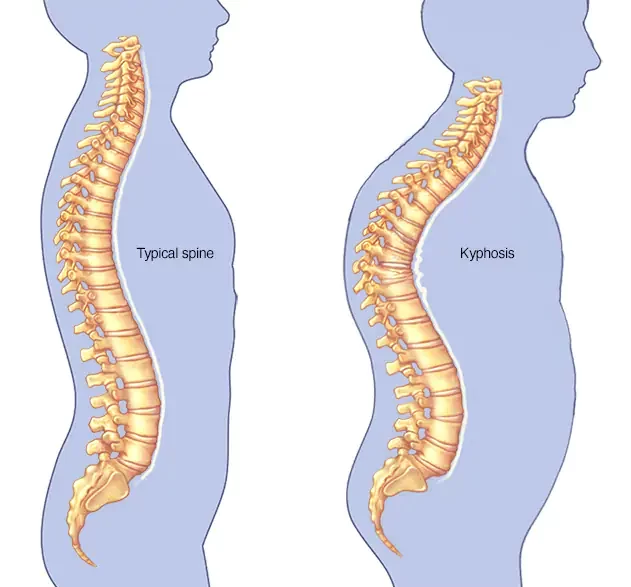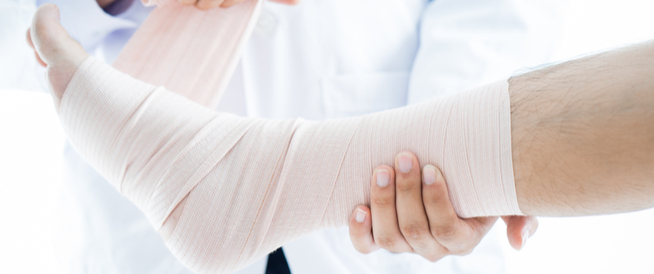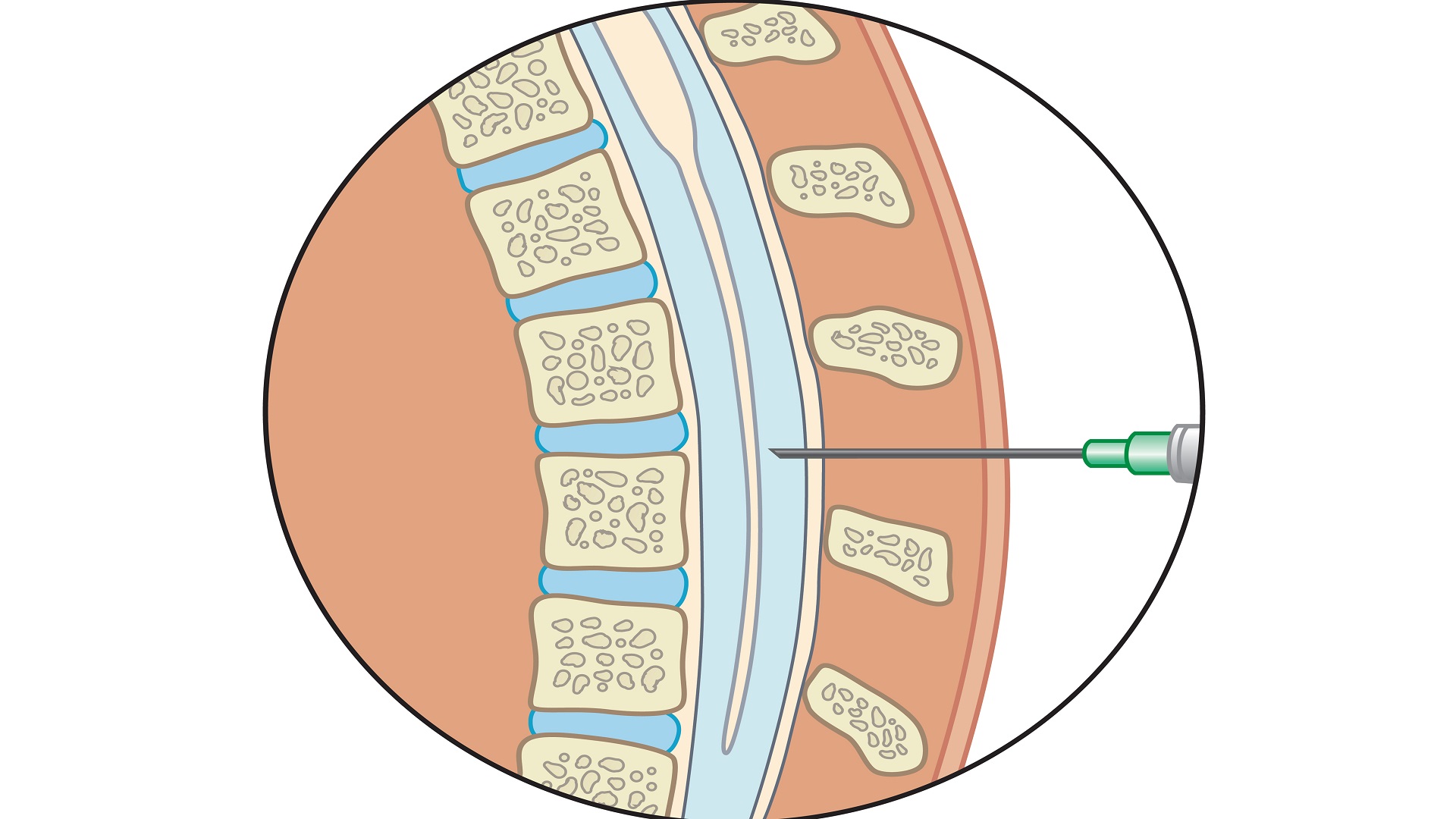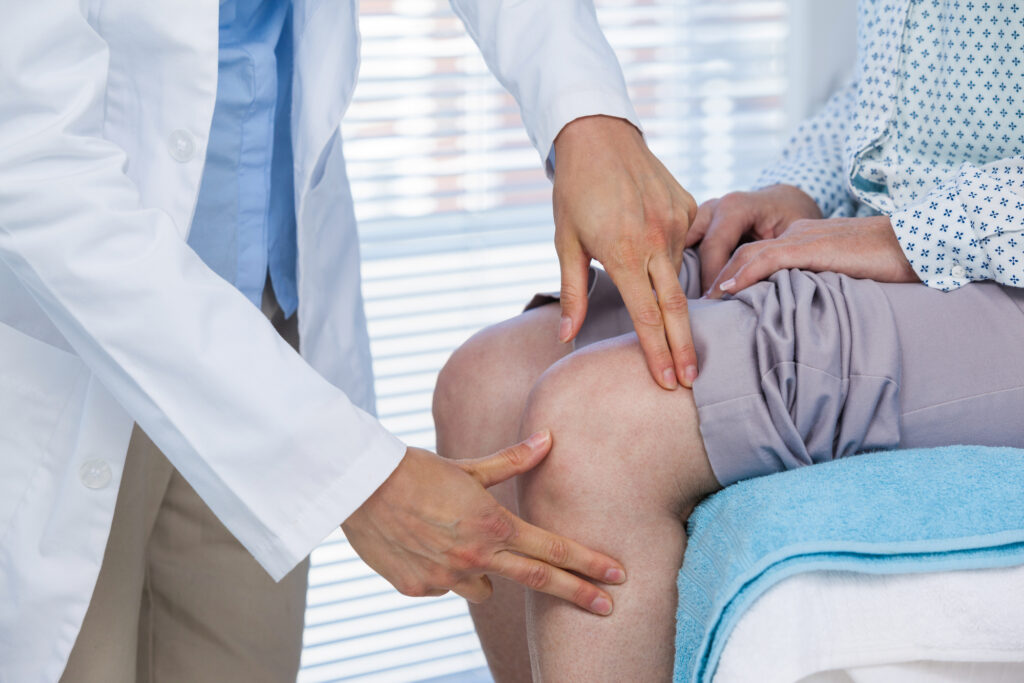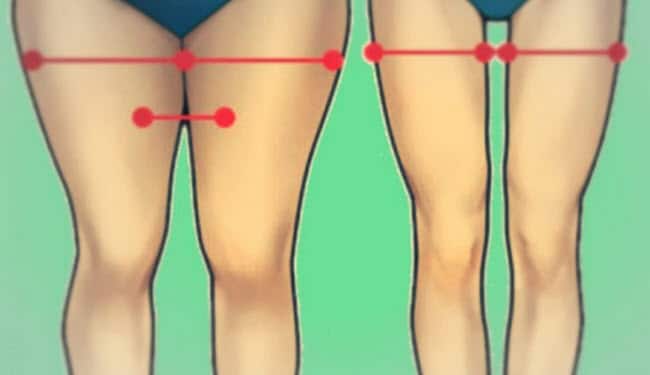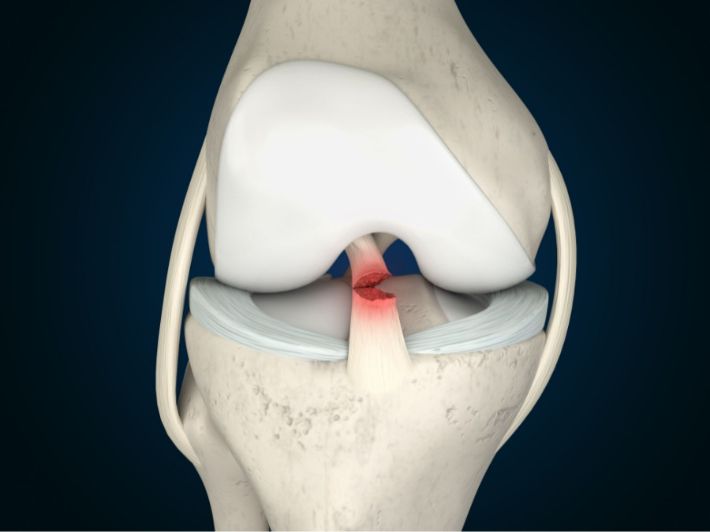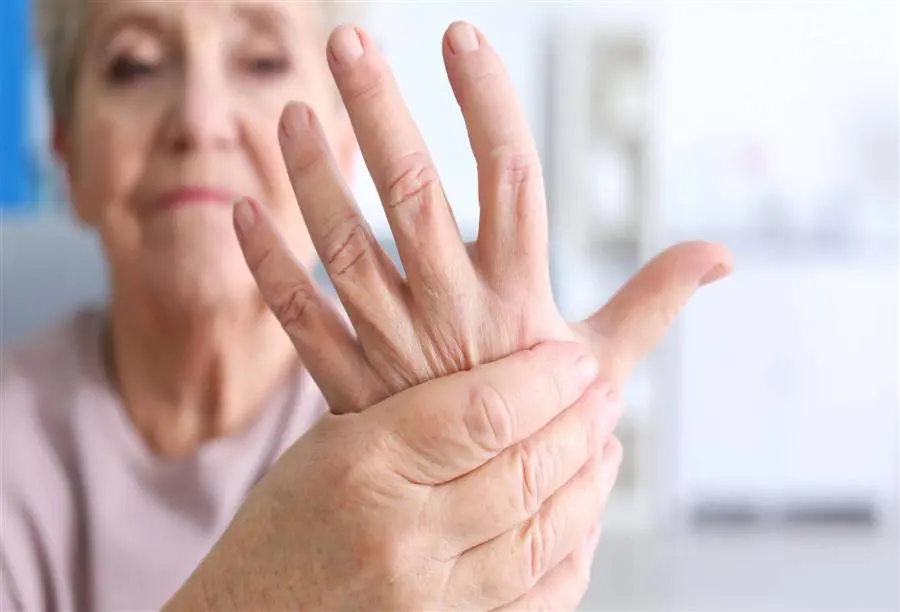The best treatment for knee pain and does calcium deficiency cause knee pain?
Treatment for Knee Pain
Home Remedies for Knee Pain: 5 Effective Methods
Knee pain is a common issue affecting many people of all ages. There are several causes of knee pain, whether due to a direct injury or health issues like arthritis. In this context, there are some home measures that can be followed to effectively alleviate and treat knee pain. Below, we will review five effective home remedies for treating knee pain:
- Using a compression bandage: Wrapping the affected area with an elastic bandage is effective in reducing swelling in the knee. You can use an elastic bandage to wrap the knee snugly and properly, which helps stabilize the joint and reduce swelling and pain.
- Elevating the knee: Elevating the knee on a pillow is a beneficial measure to reduce swelling and pain in the knee. You can place a pillow under the knee while sitting or lying down, which helps relieve the weight pressure on the joint and reduce pain.
- Applying capsaicin creams: Capsaicin creams are an effective option for relieving knee pain. These creams contain capsaicin, which stimulates nerves and contributes to pain reduction. It is advised to apply the creams regularly and under medical supervision.
- Rest: Rest is one of the important options for alleviating knee pain. Avoid strenuous activities and excessive movements that exacerbate the pain and increase joint swelling. Rest as much as possible and give your knee the necessary time to heal.
- Applying warm compresses and ice packs: Applying warm compresses and ice packs to the knee is an effective way to relieve pain and swelling. Use warm compresses to heat the knee and relieve stiffness, and use ice packs to reduce swelling and alleviate pain.
Note: It should be noted that these measures may provide temporary pain relief. If the pain persists or worsens, it is important to consult a doctor to assess the condition and direct the appropriate treatment. Some individuals may require physical therapy or surgical procedures as deemed necessary by the doctor.
It is best to follow the doctor’s instructions and ensure wearing appropriate footwear and avoiding strong movements to maintain knee health and reduce pain.
What is the best ointment for treating knee and joint pain?
Knee and joint pain are health issues that many people suffer from, both old and young. Therefore, searching for the best ointment to treat this pain is a common matter. In this report, we will review a list of the best ointments available on the market for relieving pain in the knees and joints.
Note: It is advised to consult a doctor before using any ointment to ensure it is suitable for your individual health condition.
Penetrex Cream:
- Among the most important benefits of this ointment is its consideration as the best ointment for treating knee pain for patients suffering from knee osteoarthritis.
- Penetrex is effective in treating arthritis and relieving pain by reviving the tendons.
- In addition, it contains vitamins such as B6 and E, which work to enhance the body’s health.
Hemoclar Cream:
- Hemoclar ointment is one of the ointments that contain effective chemicals for destroying blood clots.
- It helps bruises to heal, which are considered one of the causes of knee pain.
Olfen Gel:
- Contains ingredients that contribute to pain relief and reducing inflammation.
- It is characterized by its quick absorption and ease of entry into the tendons.
Reparil Gel:
- Acts to soothe pains in the knees and joints thanks to its anti-inflammatory properties.
- Helps improve knee movement and reduce friction.
Sulfax Cream:
- Contains active substances that help stimulate blood circulation and relieve pain.
- It is also used to alleviate joint pains resulting from arthritis.
Remember that these ointments may work to alleviate symptoms and not to treat the main cause of the pain. Therefore, it may be necessary to consult a doctor to determine the cause of the pain and the appropriate treatment.
Use this list as a reference for ointments available on the market, and make sure to read the instructions and follow the usage directions provided with each ointment.
What is the treatment for sudden knee pain?
Sudden knee pain can be bothersome and affect your daily life. Fortunately, many types of minor knee pain can be treated with self-care measures. In this article, we will highlight some common treatments for sudden knee pain.
Rest and Massage: Stopping painful activities and giving the knee an adequate rest period can be helpful in easing the pain. Gentle knee massage can also help alleviate tension, improve blood flow, and reduce pain.
Ice or Warm Baths: Applying ice to the painful knee for 15-20 minutes may help reduce inflammation and numb the area. Alternatively, warm baths can be used to relax tense muscles and improve blood circulation.
Pain Relievers: Over-the-counter pain relievers like acetaminophen or ibuprofen can be used to alleviate pain. However, it is advisable to consult a doctor before using any medication to ensure its safety and effectiveness.
Rehabilitation Exercises: Rehabilitation exercises help build strong muscles around the knee and increase its stability. Physical therapists design suitable rehabilitation exercise programs that target your specific problem and improve your condition.
Braces and Supports: Braces or supports can be used to strengthen and stabilize the affected knee. Using them may help improve knee alignment and reduce pain during movement.
Surgical Treatment: In severe cases and when pain does not respond to traditional treatments, surgical intervention may be necessary. This decision should be made in consultation with a specialist and after a thorough evaluation.
Alternative Therapies: Some alternative therapies like herbal treatment, acupuncture, and massage with natural oils may help alleviate knee pain. However, it is advisable to consult complementary medicine practitioners before trying any alternative treatment to ensure its safety and effectiveness.
No matter which treatments you use for sudden knee pain, it is important to consult a doctor for an accurate diagnosis and to determine the most appropriate treatment. Remember that prevention is the best treatment, so if you experience sudden knee pain, avoid overloading it, wear comfortable shoes, and practice proper exercise techniques to maintain knee health.
What is the cause of severe knee pain? 7 Possible Reasons!
Many people suffer from chronic knee pain that hinders their normal activities and affects their quality of life. Severe knee pain is a common problem, and there are several reasons that may be responsible for its occurrence. In this article, we will highlight 7 of the most important causes of severe knee pain.
- Knee Dislocation or Fracture: If you experience continuous knee pain after a fall or another injury, you may have dislocated or fractured your knee. In this case, it is advisable to go to the emergency room for an evaluation of the knee’s condition and receive necessary treatment.
- Ligament or Muscle Inflammation: Inflammation of ligaments or strained muscles is another factor that can lead to severe knee pain. This inflammation can result from excessive stress on the knee, whether during sports or daily activities. Consulting a doctor is necessary to determine the cause of inflammation and prescribe the appropriate treatment.
- Cartilage Tear: Tearing of the joint cartilage in the knee can occur due to acute injuries or gradual wear and tear. Those affected by this condition experience sharp and intense pain in the knee, as well as difficulty in movement. Treatment depends on the size and severity of the tear.
- Osteoporosis: Osteoporosis is another significant factor that can cause severe knee pain. This disease leads to weakened and damaged bones, making the joint more susceptible to injury and pain. Treating osteoporosis may involve lifestyle changes and the use of appropriate dietary supplements.
- Excess Weight: Excess weight is an important factor in the appearance of severe knee pain. The extra weight places additional stress on the joint, leading to cartilage wear and pain. Weight reduction is recommended to reduce the pressure on the knee and alleviate pain.
- Incorrect Movement and Sudden Impact: Incorrect movement and sudden impact on the knee can cause unbearable pain. When putting all the body weight on the knee or directing improper foot movements, injuries and inflammation in the knee can occur.
- Gout: Gout is considered one of the diseases that may cause severe knee pain. Gout is characterized by the accumulation of uric acid in the joints, resulting in sharp pain and severe swelling. Visiting a doctor and starting appropriate treatment is advisable.
Note: If you are suffering from severe knee pain, it is best to consult a doctor for a precise diagnosis and appropriate treatment.
Can Walking Treat Knee Pain?
Walking is a simple form of physical activity that can be easily done by everyone without significant cost. According to recent research, walking can be an effective way to treat knee osteoarthritis. A study conducted on individuals over 50 years old showed that engaging in walking exercises can help reduce pain and slow down the damage occurring in the joints.
In this article, we will provide you with a list of the benefits of walking in treating knee pain and improving joint health:
- Pain Reduction: According to the mentioned study, the results indicated that engaging in walking exercises reduces pain associated with knee osteoarthritis. This is attributed to increased blood flow and nourishment to the joint and strengthening the muscles surrounding the knee, which plays a crucial role in joint health.
- Delayed Joint Damage: Researchers suggest that regular walking can slow down the rate of joint damage and reduce the risk of chronic diseases like arthritis.
- Improved Muscle Strength: Walking helps strengthen important muscles for knee health, such as thigh and leg muscles. The strength of these muscles can help stabilize the knee and reduce pressure on the joint during movement.
- Enhanced Flexibility: Daily walking can help increase overall body flexibility, including the joints. Flexible joints are less prone to injuries and pain.
- Weight Management: Weight loss is considered essential to improving knee health. By reducing the pressure on the joints, walking can help alleviate pain and maintain knee health.
Despite the benefits of walking in treating knee pain, some middle-aged patients and advanced athletes are advised to consult a doctor before starting any exercise activity. They should avoid certain types of sports that could increase knee damage.
In conclusion, walking is a simple yet powerful physical activity for treating knee pain and improving joint health. Regular walking should be practiced under medical supervision to maximize its benefits.
Does Vitamin Deficiency Cause Knee Pain?
The knee is one of the vital joints in the body, and vitamin deficiency is one of the factors that may affect knee health and cause knee pain. In this article, we will shed light on the role of vitamins in knee health and whether their deficiency can cause knee pain.
Vitamins and Knee Health:
Vitamins play a crucial role in knee and joint health in general. Most vitamins contribute to strengthening bones and cartilage, which are essential components of knee health. The key vitamins that impact knee health are vitamin D and vitamin C.
Vitamin D Deficiency and Knee Pain:
A deficiency in vitamin D in the body can lead to joint stiffness, which can cause knee pain. However, it’s important to note that this deficiency primarily affects people with severe osteoporosis. So, if you don’t suffer from severe osteoporosis, vitamin D deficiency may not be the primary cause of knee pain.
Knee Pain Associated with Other Causes:
Knee pain can result from other factors besides vitamin deficiencies, including:
- Muscle strain and weakness.
- Joint inflammations.
- Sports injuries like knee sprains or cartilage tears.
- Inflammation of the tendons around the knee.
- Structural issues in the knee, such as misalignment.
- Accumulation of fluid in the knee.
When to See a Doctor:
If you are experiencing knee pain and suspect that vitamin deficiencies may be the cause, it is advisable to consult a doctor for a precise diagnosis. The doctor can perform the necessary tests and analyze vitamin levels in the blood to determine the cause of the pain.
In conclusion, while vitamin deficiencies can impact knee health, they are not the sole reason for knee pain. Therefore, it is essential to identify the exact cause of the pain through consultation with a doctor to receive appropriate treatment.
Does Calcium Deficiency Cause Knee Pain?
A deficiency in calcium in the body can lead to the development of knee pain. This is due to the crucial role that calcium plays in bone and muscle health. Calcium is an essential substance for bone formation and strengthening. When calcium deficiency is severe in the body, it affects bone density and increases the likelihood of fractures.
When bones become fragile and brittle due to calcium deficiency, it can increase pressure and tension on the joints, potentially causing knee pain. The pain may be severe during movement or when engaging in weight-bearing activities such as walking, climbing, or running. It may also be accompanied by a feeling of stiffness or limitation in knee movement.
In addition, knee cracking is one of the symptoms associated with calcium deficiency in the body. When bones lack sufficient calcium, they become brittle and weak, increasing the likelihood of gas accumulation in the joints and mechanisms that cause knee cracking. This cracking may occur during sudden movements or after sitting for extended periods.
To prevent calcium deficiency, strengthen bones, and alleviate knee pain, it is recommended to follow a healthy and balanced lifestyle, including consuming an adequate amount of calcium through the diet. Dairy products, fish, nuts, and legumes are good sources of calcium. Regular exercise is also advised, focusing on strengthening the muscles around the knee through muscle-strengthening exercises. Consultation with a specialized doctor is necessary to address calcium deficiency, including dietary adjustments and dietary supplements if needed.
What Is the Best Medication for Joints?
Nonsteroidal Anti-Inflammatory Drugs (NSAIDs): These medications work to relieve pain and reduce inflammation in the joints. Common NSAIDs used to treat joint inflammation include Ibuprofen and Naproxen.
Disease-Modifying Antirheumatic Drugs (DMARDs): These drugs are used to treat rheumatoid arthritis and help reduce inflammation and muscle stiffness. Examples of DMARDs include Methotrexate and Hydroxychloroquine.
Biological Agents: These medications are used to treat advanced rheumatoid arthritis and aim to prevent joint inflammation. Examples of biological agents include Adalimumab and Etanercept.
Corticosteroids: These drugs help reduce inflammation and alleviate symptoms. Common corticosteroids used to treat joint inflammation include Prednisone and Dexamethasone.
Pain Relievers: These medications do not address inflammation but help alleviate pain associated with joint inflammation. Common pain relievers include Acetaminophen and Tramadol.
In addition, there may be potential benefits of using malaria drugs such as hydroxychloroquine in treating arthritis.
Antioxidants: These medications include antioxidant vitamins such as vitamin C and vitamin E, which may contribute to reducing inflammation.
Alternative therapy: Some people prefer alternative treatments such as massage, physical therapy, and exercise to alleviate symptoms associated with arthritis.
It is advisable to consult a doctor before taking any of these medications, as the doctor can assess your condition and prescribe the most appropriate treatment based on your needs, preferences, and medical history.
Is Knee Cracking Serious?
Knee cracking is a common issue that many people face, especially during movements such as climbing stairs, sitting, and driving for long distances. Many individuals may experience knee pain, often accompanied by the phenomenon of knee cracking or unusual sounds when the joint moves.
Most of the time, knee cracking is not serious and is often associated with minor joint issues. One of the most common causes of knee cracking is a torn meniscus. This tear can cause swelling, stiffness, and pain in the knee and may also lead to cracking during movement. The knee joint is subjected to significant pressure, as it bears the weight of the entire body.
However, knee cracking without pain may be simple and not indicative of any serious problem. If your cracking occurs when bending the knee without pain and originates from the surface of the cartilage, tissues, or tendons in the joint, there is no need to worry.
Knee crepitus may result from the wear and tear of cartilage within the joints. Although osteoporosis may affect all joints in the body, the knee joint is significantly impacted. The presence of an audible cracking sound in the joint does not necessarily indicate a major problem, and there is no need to worry.
In general, it is advisable to consult a doctor if you experience continuous knee cracking accompanied by severe pain or if it restricts your daily movements. The doctor can perform necessary examinations to determine the cause of the cracking and establish an appropriate treatment plan if needed.
Knee cracking is generally not serious in most cases and may be a natural result of joint movement. However, it is best to consult a doctor if you feel concerned or if the pain is persistent or severe.
Which Vitamin Is Responsible for Joint Pain?
Vitamin D is considered one of the essential vitamins that plays a crucial role in bone and muscle health, as well as in strengthening and protecting joints from pain and inflammation. Vitamin D works to stabilize calcium and phosphorus in bones, enhancing their strength and reducing the risk of diseases such as osteoporosis.
Vitamin D deficiency in the body can lead to an increased risk of joint pain and joint stiffness. Vitamin D is considered essential for the absorption of calcium and phosphorus in the bones and helps in the formation of healthy bone tissues. Additionally, vitamin D may have anti-inflammatory effects, contributing to the alleviation of pain associated with joint inflammation.
To obtain a sufficient amount of vitamin D, it can be consumed from natural sources such as egg yolks and dairy products like milk and cheese. Vitamin D supplements can also be taken as part of a healthy diet.
Furthermore, there is another vitamin that some suggest plays a role in relieving joint pain and promoting joint health, which is vitamin B9, also known as folic acid. Vitamin B9 is considered essential for various bodily functions, including the development of muscle and bone tissues. Vitamin B9 can be obtained from foods such as spinach, lentils, and chickpeas, and supplements can be taken after consulting a doctor.
Therefore, it is important to pay attention to consuming an adequate amount of vitamins and minerals that play a role in joint and bone health. Consultation with a doctor before taking any dietary supplements and incorporating them into the daily diet can help the appropriate vitamin to alleviate joint pain and provide relief from associated inflammation.
How Do I Know if a Knee Injury Is Serious?
You can identify a serious knee injury through the following points:
Severe and unreasonable pain: If the knee pain is severe and does not subside with rest and simple home treatments such as using ice and compression, the injury may be serious.
Inability to bear weight: Serious knee injuries may result in an inability to attempt walking or bear weight on the affected knee. If you have significant difficulty in walking without support or bearing even slight weight, you may need immediate medical attention.
Severe and persistent swelling: Significant knee swelling and persistent swelling that does not subside over time or with home treatment can be a sign of ligament or cartilage tear that requires immediate medical care.
Audible sound or feeling of locking: If you hear an audible sound or feel a locking sensation during movement or attempts to move the knee, it may be a sign of ligament tear or cartilage tear. These injuries require prompt medical evaluation.
Knee instability: If you feel knee instability during movement or standing on the knee, there may be a serious injury. Advanced injuries to the ligaments or cartilage can result in an inability to maintain knee stability, requiring urgent medical care.
If you experience any of these symptoms, it is advisable to visit a doctor for an evaluation of the injury and guidance on the appropriate treatment. Consulting with an orthopedic or sports specialist can help diagnose and treat the injury correctly and provide necessary advice for returning the knee to its normal condition.
What Foods Strengthen the Knees?
We will present to you various foods that help strengthen the knees and alleviate associated pain. In this list, you will find a variety of foods that contain essential nutrients for knee health. These foods include substances rich in anthocyanins, antioxidants, and anti-inflammatory properties found in cherries and green tea.
- Cherries: Cherries contain anthocyanins, a substance that protects the knee joint from inflammation and pain. Olive oil: Olive oil contains antioxidants and monounsaturated fatty acids that help strengthen and protect the knee from inflammation.
- Fatty fish: Fatty fish like salmon and tuna contain Omega-3 fatty acids that promote joint health and strengthen the knee. Vegetables, especially avocados: Some vegetables like spinach and cauliflower contain antioxidants, vitamins, and minerals that help strengthen the knee.
- Fresh fruits: Fruits such as oranges, grapefruits, strawberries, and pineapples contain vitamin C, which enhances the health of joint cartilage, including the knee.
- Flaxseeds: Flaxseeds contain Omega-3 fatty acids and antioxidants that help strengthen the knee and reduce inflammation.
- Red and preserved meats: Red meat should be consumed in moderation as part of a healthy diet to strengthen the knee. It is advisable to avoid preserved meats.
- Foods rich in vitamin E: Such as spinach, cauliflower, peanuts, mangoes, and kiwi. These foods enhance joint health and help strengthen the knee.
Consuming these foods regularly as part of a healthy and balanced diet may help strengthen the knees and alleviate their pain. If you have any health concerns, it is recommended to consult with your doctor before making any dietary changes.
Does Salt Cause Knee Pain?
An increase in salt deposits in the body is considered a health problem that can affect several joints, including the knee joint. According to reports, the joints most affected by increased salt deposits are the joints of the feet and hands, along with the knee and ankle joints at times.
People who have an excess of salt in their bodies may experience a variety of health issues, including joint pain. Excessive salt consumption is associated with high blood pressure and an increased risk of heart disease and stroke.
When there is an increase in salt deposits in the joints, individuals may experience sharp or persistent knee pain. This pain tends to occur, especially during walking or movement, affecting a person’s ability to carry out daily activities efficiently. Additionally, individuals may feel stiffness in the joints and have difficulty moving them easily.
To treat knee pain caused by increased salt deposits, several steps are recommended. First, reducing salt consumption in the diet and avoiding salty foods and high-sodium beverages is advised. Furthermore, increasing the intake of healthy fluids like water can help flush out excess salts from the body.
It’s worth noting that consulting a doctor for a comprehensive evaluation and precise treatment guidance may be necessary. Treatment may include pain relieving medications and physical therapy to strengthen the muscles surrounding the knee and improve its flexibility.
In general, it is always better to prevent the accumulation of salts in the body by following a healthy, balanced diet and maintaining appropriate sodium levels. Salty foods and sodium-rich beverages should be avoided as much as possible. Regular physical activity is also recommended to maintain muscle and joint strength and flexibility.
Ultimately, individuals experiencing knee pain due to increased salt deposits should contact a doctor for an accurate diagnosis and appropriate treatment guidance.
